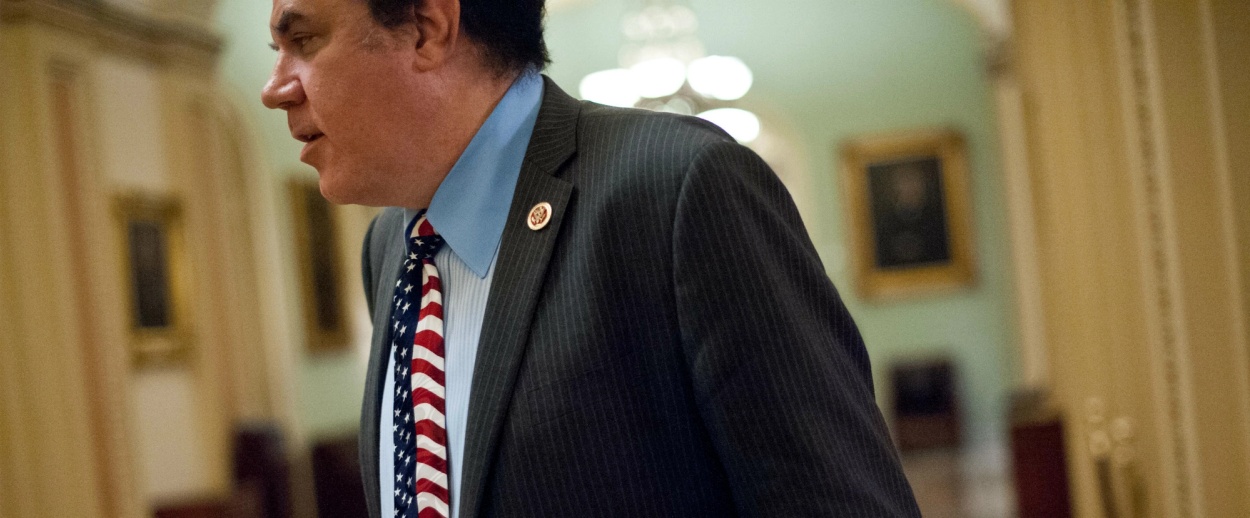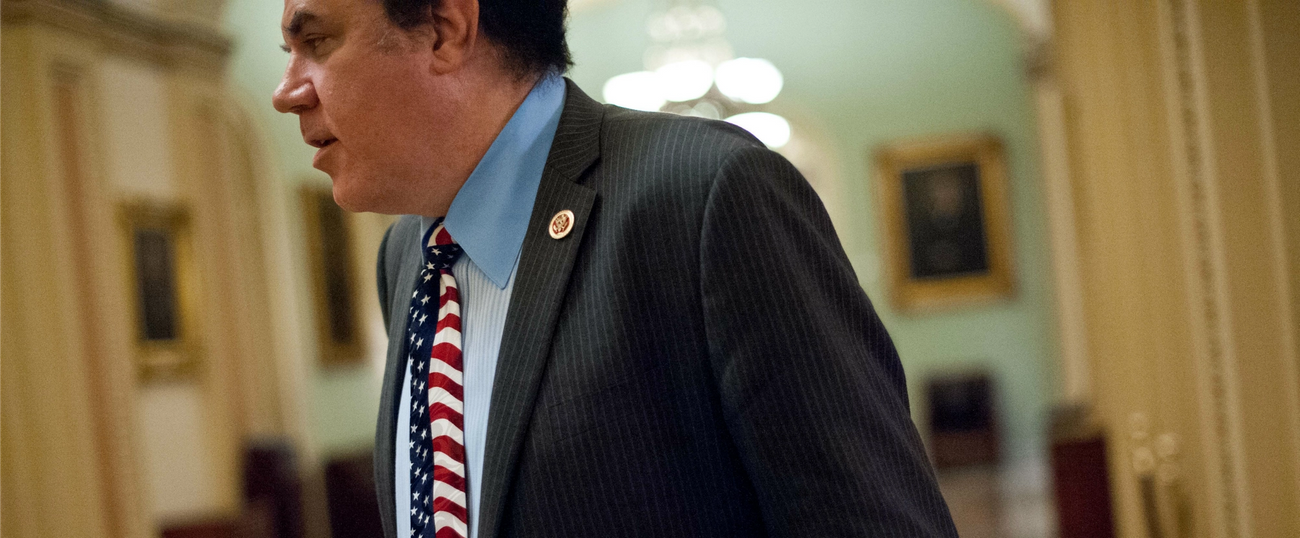Has Alan Grayson Reached the End of the Road?
The embattled politician lost Florida’s Democratic primary for the U.S. Senate on Tuesday




Alan Grayson, the explosive left-wing Jewish Congressman from Central Florida, crashed and burned Tuesday in Florida’s Democratic primary for the U.S. Senate. He leaves a typically problematic legacy for the national party leaders who came to despise him.
The immediate effect of Grayson’s scorched-earth campaign is likely to jeopardize the Democrats’ chances of winning control of the Senate in November. Palm Beach Congressman Patrick Murphy, the Senate primary winner, has been so damaged by Grayson that only a Hillary Clinton landslide is likely to enable him to take the seat from in-again incumbent Republican Sen. Marco Rubio.
Grayson was resolute but subdued at his headquarters election night. He refused to issue a concession statement after the 59-18 results were in, and said he would not vote for Murphy in November. He left early with his new wife, Dr. Dena Minning Grayson, who finished third in her effort to hang onto her husband’s ninth congressional district seat.
You can pick your metaphor for Alan Grayson, a controversial, liberal firebrand with a self-destructive streak: the Incredible Hulk, Dr. Jekyll and Mr. Hyde, or even Icarus, whose hubris led him to fly too close to the sun.
Party leaders barely tolerated Grayson in the House, where he was an effective and articulate champion of progressives across the nation. He shot to fame when, during the 2009 debate on Obamacare, he characterized the GOP’s plan as advising people not to get sick, or if they did, to “die quickly!” Yet even his critics, who were legion, acknowledged that he was a savvy, behind-the-scenes legislator, as he passed numerous bills and amendments under both Democratic and Republican leadership.
Grayson’s Senate bid, however, was too much for the pragmatic Party establishment to stomach.
Fearful that Grayson would lose in November, they rolled out the big guns for Murphy, a moderate liberal, who they felt was ideal to run in a swing state like Florida: endorsements from President Obama, Vice President Biden, Senate Minority Leader Harry Reid, and his likely successor, Chuck Schumer. They have appeared at his fundraisers, yielding a combined $10 million war chest, including more than $1.5 million from Wall Street donors. Obama himself cut two television spots for Murphy, and Biden has made three trips to the state for him.
Despite this, Murphy proved to be an ineffectual campaigner, and Grayson managed to hold his own in the polls until the Democratic National Convention in Philadelphia in July.
There, a Politico story reported that they had received an email from Grayson’s former wife, Lolita Carson-Grayson, who charged her ex-husband with four incidents of domestic abuse, in Virginia and Orlando, over a 20-year period. The story hit Grayson with the precision of a drone strike, with all the hallmarks of a classic, opposition research hit. In the Democratic convention’s media hothouse atmosphere, there was neither time nor inclination to examine each of the incidents, allegations he strenuously denies.
Then, in his latest in a career marked by self-sabotage, Grayson compounded the story’s damage by showing up at a Politico technology session at the convention, where a surreal shoving match ensued with the reporter who wrote the abuse story. It ended with Grayson threatening the journalist with arrest. All of this was captured on a Mother Jones reporter’s cell phone video, cementing the sense that Grayson was an out-of-control madman.
The political fallout was almost immediate. Two of Grayson’s longtime allies, the Progressive Change Campaign Committee and Democracy for America, withdrew their endorsements, and the Communications Workers of America said they were reconsidering theirs. Several high-level Grayson campaign staffers and a consultant resigned. Almost on cue, women’s domestic abuse groups added their condemnation. Pundits and journalists pronounced his candidacy in a death spiral, effectively finished. He never was able to change the subject to his progressive agenda, universal health care; “Seniors Deserve a Raise,” an increase in Social Security payments; and his “Eyes, Ears and Teeth” Medicare expansion.
For much of his career in Congress, Grayson embraced AIPAC, with the exception of U.S. military intervention in Syria and, more significantly, voting for the Iran nuclear agreement. Yet during his Senate campaign, Grayson didn’t overtly bang either the Jewish or Israel drums in vote-rich South Florida. Instead, he embraced the Black Lives Matter movement in the closing months of his campaign, in Tampa and Jacksonville, making no mention of the group’s controversial platform’s anti-Israel planks.
When I asked him about the manifesto while we waited for the primary results to come in Tuesday, he brushed me off, saying the section accusing Israel of genocide was “completely peripheral to the pain that’s been experienced by the Black community” from the police shootings around the country.
So, is this the end of Alan Grayson’s political career? Counting him out can be a mistake, as he proved with his landslide return to Congress in 2012 following a Tea Party defeat in 2010. On the way out of the election night party, Dena Grayson promised, “You haven’t seen the last of the Graysons.”
Mark I. Pinsky is author of The Gospel According to Disney: Faith, Trust and Pixie Dust.